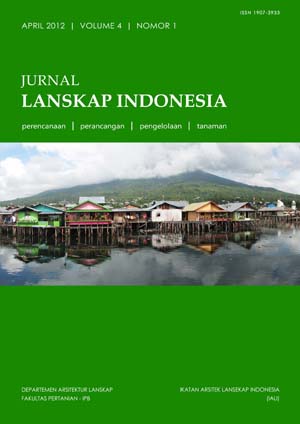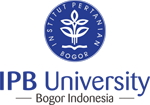POTENSI OBYEK WISATA DAN KETERPADUANNYA DALAM PENGEMBANGAN KAWASAN AGROPOLITAN PAYANGAN, KABUPATEN GIANYAR, PROVINSI BALI
Abstract
Payangan Agropolitan is an area of agricultural development that has tourism potential. Along with development of the agricultural sector, the tourism sector also developed. However, recently trends that agriculture sector got tressured by thedevelopment of other sectors; one of them was the tourism sector. Thus, further developments need to be done in an integrated manner. Objectives of this research were: (1) to find out the potential of tourist attractions to be developed in the region of Payangan Agropolitan; (2) to find out the tourist's perception on the factors that effects tourist visitation to the Area of Payangan Agropolitan;(3)to formulate plans and strategies of integrated tourism development of Payangan Agropolitan in the framework of area development. Analysis on the tourism potential showed that the most preferred was nature-related tourism. From analysis of the factors of tourist
visitation, there were five dominant influential factors, i.e: services, tourism and attraction types, the available facilities, transportation facilities, and promotion. Furthermore, on the subsequent analysis it was obtained three main strategies to
integrate tourism with areadevelopment of Payangan Agropolitan, consisted of: improving the sectoral linkage by integrating of inter-existing sectors was developing science and technology; introducing and offering the existing tourism potential by developing tourism packages through a partnership of government, private and public; and strengthening the tourism by establishing partnerships and networks.
Downloads
This journal permits and encourages authors to post items submitted to the journal on personal websites or institutional repositories both prior to and after publication, while providing bibliographic details that credit, if applicable, its publication in this journal. However, after the article is submitted and published in this journal, it is fully copyrighted by the Jurnal Lanskap Indonesia or JLI. If excerpts from other copyrighted works are included, the author must obtain written permission from the copyright owner and give credit to the source in the article. Then, the writer or reader is allowed to copy, share, and redistribute articles/material in any form. But it must still include the appropriate source and credit because the article in this journal is licensed by Creative Commons Attribution 4.0 International License (CC BY 4.0).
I. Proposed Policy for Journals That Offer Open Access
Authors who publish with this journal agree to the following terms:
- Authors retain copyright and grant the journal right of first publication with the work simultaneously licensed under a Creative Commons Attribution License that allows others to share the work with an acknowledgement of the work's authorship and initial publication in this journal.
- Authors are able to enter into separate, additional contractual arrangements for the non-exclusive distribution of the journal's published version of the work (e.g., post it to an institutional repository or publish it in a book), with an acknowledgement of its initial publication in this journal.
- Authors are permitted and encouraged to post their work online (e.g., in institutional repositories or on their website) prior to and during the submission process, as it can lead to productive exchanges, as well as earlier and greater citation of published work (See The Effect of Open Access).
II. Proposed Policy for Journals That Offer Delayed Open Access
Authors who publish with this journal agree to the following terms:
- Authors retain copyright and grant the journal right of first publication, with the work after publication simultaneously licensed under a Creative Commons Attribution License that allows others to share the work with an acknowledgement of the work's authorship and initial publication in this journal.
- Authors are able to enter into separate, additional contractual arrangements for the non-exclusive distribution of the journal's published version of the work (e.g., post it to an institutional repository or publish it in a book), with an acknowledgement of its initial publication in this journal.
- Authors are permitted and encouraged to post their work online (e.g., in institutional repositories or on their website) prior to and during the submission process, as it can lead to productive exchanges, as well as earlier and greater citation of published work (See The Effect of Open Access).



























